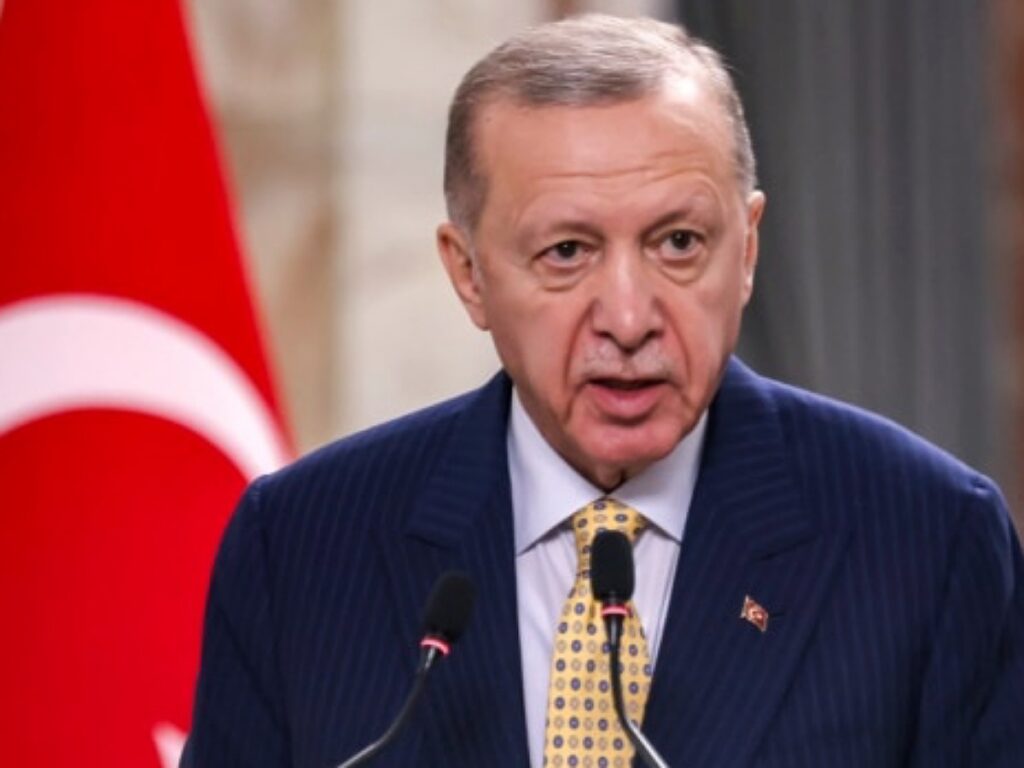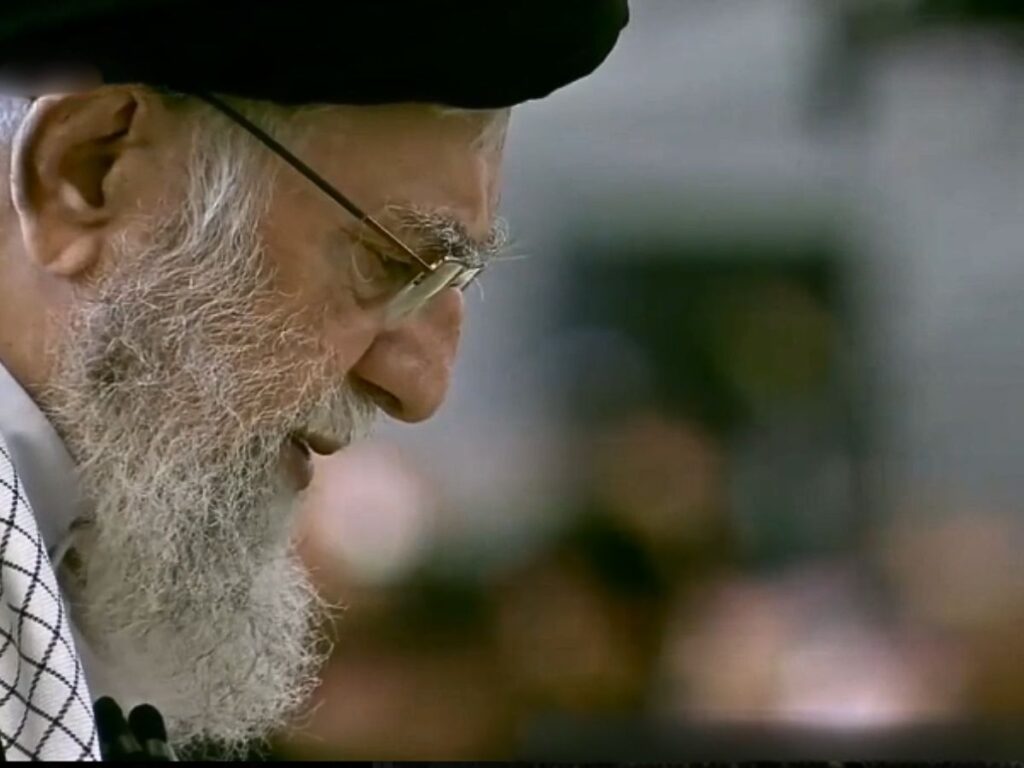
Only a politically naïve person—or a fool–would believe that the people of Syria and Turkey and not the United States (which has a base not very far away from Damascus) and Israel are the main beneficiaries following developments taking place after the dethronement of Syrian tyrant Bashar al-Assad. It is rather feared that Turkey, like Iran in the past, may get sucked into the Syrian quagmire, whose architects are sitting in the Western capitals.
The way the Turkish army attacked the US-backed Syrian Democratic Forces, a leading Kurdish group, that occupies about 20 percent of the territory of this country, raised this fear. At least 26 people were killed in this incident on December 8 which is just hours after Assad fled from Damascus.
Questionable timing

The very timing of this sudden development in the last fortnight—that is after the cease-fire with Hezbollah–is intriguing. After all, it was only on November 12, 2024, that Turkish President Recep Tayyip Erdogan and Bashar al-Assad attended the extraordinary joint summit of the Organization of Islamic Cooperation in Riyadh. Things appeared to be heading in the right direction as the Muslim world, though
belatedly, showed some sign of unity against Israeli atrocities. It was not at all possible for Turkey alone to back such a meticulously planned operation against Assad, especially when Syria had since 2020
hardly witnessed any big fighting. Middle East watchers, in particular not those sitting in the West or Gulf countries, see a clear US and Israeli design in the whole exercise. They (including K P Nayar of India) are of the view that lame-duck President Joe Biden is working overtime on this front as the present establishment is not sure of the likely moves of the next President Donald Trump. Their view is that since Trump has repeatedly said that the US should withdraw from Syria and NATO and re-think its policy towards Russia, Biden has become hyperactive. The US Deep State swung into action in Syria, Belarus, and Georgia and increased its arms supply to Ukraine. In all these countries much is at stake for Russia. So, only those not aware of the entire situation would see the development in Syria in isolation.
The Israeli Defence Forces are taking full advantage of the political vacuum and are bombing relentlessly the military targets in Syria as they did in Gaza and Lebanon.
No tears were shed for Assad
It is also a fact that nobody in the world, including in Russia where Assad had taken refuge, will shed any tear over his toppling. He rejected all the proposals of some sort of deal forwarded by Turkey and Iran. The latter had genuine stakes in Syria ever since the February 11, 1979 Islamic Revolution.
True, Turkey was initially somewhat happy that it is getting undue credit for the ouster of a despot–though it soon realized the gravity of the situation created after Assad’s exit. The real players the United States and its protégé Israel never want a popular regime to replace Assad, but to install another titular head as Washington did in Egypt where it got the first elected government of Mohamed Morsi dismissed by the same army against whom the people had revolted in January-February 2011. More or less the same thing happened in Tunisia while Libya and Iraq were left in turmoil after the overthrow of dictators like Muammar Gadaffi and Saddam Hussein respectively.
Most Western journalists and experts are deliberately exaggerating the part played by Turkey in bringing down the brutal regime in Damascus. This is because they want to hide the nefarious role played by the United States and Israel. The big question is why Assad was brought down now when there has been a calm, though uneasy one, in the country since the 2020 cease-fire with the rebels following talks between Erdogan and Putin. Not only that the Gulf countries and even Turkey had been softening its stand against Syria, which was re-inducted into the Arab League.
Iranian involvement
It would be inappropriate to ignore the Iranian involvement in the Levant, whose origin can be traced back to 1979. No, Iran cannot be exonerated for some blunders committed under certain political compulsions. It should also be made clear that the Sunni rulers of the entire region played a dirty game against Tehran. Instead of welcoming the pro-people anti-Israel revolution, they pushed it to take another extreme position.

It needs to be made clear that when the revolution took place against the pro-US Shah of Iran, its leader Ayatollah Ruhollah Khomeini publicly called America a Great Satan. His country snapped its ties with
Israel, the best friend of Iran till then. Khomeini adopted the policy of distancing his country from the Capitalist West and the then-Communist Soviet Union. He called for unity between Shias and Sunnis. It was also true that some within Iran in those days did not fully agree with him on several issues.
But the tin-pot dictators, enjoying the full backing of the United States, gave a different twist to this development. As they feared that the mass upsurge in Iran may have a domino effect and create problems within their own countries, the Sheikhs, Emirs, and military rulers of these countries, almost all Sunnis, raised the bogey of Shia expansionism, when the fact is that besides Iraq and Bahrain, they were a minority in all these places. Incidentally, the rulers of Bahrain and Iraq were Sunnis. So, for all
practical purposes, Iran was the only country ruled by Ithna Ashari Shias. Yemen, which has Zaidi Shias, is then considered closer to Sunni Saudi Arabia than Iran, where the overwhelming population follows Ithna Ashari Shiism. Azerbaijan was then a part of the Soviet Union.
Then (1978-79), the Egyptian President Anwar Sadat signed the Camp David accord with Israel, which agreed to vacate the Sinai Peninsula captured by the Zionist State in 1967. This American
brokered agreement dealt a severe blow to the cause of Palestinians as Jordan had already dissociated itself from the whole issue.
Only Syria, then ruled by Hafez al-Assad, Bashar’s father, took the anti-Israel stand. It is also true that he too was a secular dictator, who had absolutely nothing to do with Islam as championed by Iran. But Iran made this compromise as Syria was the only country to join Tehran’s Axis of Resistance against Israel. Lebanon was then embroiled in a 15-year-long civil war between 1975 and 1990. The fight here was between Christians, who later enjoyed the support of Israel and the West, and
Sunnis, Shias, and Palestinian refugees on the other side.
Alawites, not Shias
Though it is generally propagated that Alawites are Shias, the truth is that they are a different minority sect promoted by the French colonialists. Initially, Iranians were not involved in Syria’s internal politics because on September 22, 1980, the West and almost all the Sunni countries of the region backed Saddam Hussein, another brutal dictator, to attack Iran, which led to the killing of lakhs of people.
The Palestinian cause got a huge setback, though Hafez-al-Assad’s Syria was the only Arab country to back Iran. That too was because the ruling Ba’athist parties of Iraq and Syria had developed differences.
Within Syria, the situation was grim with Sunni Islamic groups raising a banner of revolt in February 1982. It was brutally crushed by the regime. The man who earned notoriety in this massacre of thousands of people was Hafez’s younger brother, Rifaat, who came to be known as the ‘Butcher of Hama’. He was made the Vice President of the country.
In 1984 Rifaat revolted against his brother President Hafez, whose reliance on Sunni army generals reportedly irked him. So Rifaat, with the help of Alawite military officers, staged a coup, which failed.
Rifaat was not arrested as family members intervened. He left the country and spent most of his years in France. Later he became a part of anti-regime groups. When Hafez died in 2000 he tried to prevent Bashar from succeeding his father.
Though Rifaat was responsible for the killing of thousands of Sunnis at least one of his four wives was a Sunni. Not only that an Alawite Rifaat is through marriage closely related to King Abdullah, the then
Salafi ruler of Saudi Arabia. Throughout that period Iranians concentrated more in Lebanon where Hezbollah came up to fight Israel. Its suicide attack in Beirut on October 23, 1983, left 241 US and 58 French soldiers killed.
By the turn of the century, Iranian involvement increased, and in 2006 Hezbollah fought a bloody battle with Israel. When the entire Arab world deserted the Palestinian cause, Iran helped Sunni Hamas become a power in Gaza.
However, it was during the Arab Spring in 2011 that Iran got dragged into Syrian politics. Iran and Hezbollah came to the rescue of the beleaguered Bashar regime, especially when the dreaded terrorist group, Islamic States of Iraq and Syria, said to be the American and Israeli creation, invaded these two countries. They used Turkey as the launching pad for their movement.
Rightly or wrongly Iran had to decide the victory of ISIS then amounted to the victory of Israel. But from hindsight, it can be said that Tehran got embroiled too much in the Syrian contradictions. Some leaders of Hamas then distanced themselves from Iran though later they once again changed their stand. In 2022 Hamas reconciled with the Bashar regime as Syria was the lone route of supply for it.
Bashar fully exploited this situation to his advantage. He thought that he was completely secure as the rebels had been silent since 2020. But after the war in Gaza, in which no Arab country, save Iran and Hezbollah came to the rescue of Palestinians, things changed completely.
American base in Syria
What is virtually blacked out from the media is what the American soldiers based in Syria are doing. They had not occupied this space for a picnic.
Syrians have every right to celebrate as the country has got rid of a barbaric dictator. But in doing so they would have to be cautious of the American and Israeli design. The over-involvement of Turkey, like
Iran may also backfire. Today or tomorrow the people of Syria will have to realize that they cannot equate Bashar al-Assad with Iran and Hezbollah. After all, all the Arab countries are ruled by dictators perhaps worse than Bashar.
Giving the whole issue a sectarian twist would be suicidal for the people of Syria. Mind it, after the dismemberment of the Soviet Union in 1991, Azerbaijan became the second country ruled by the majority of Shias. Yet its relationship with Shia Iran is not good. Iranians called the ruler in Baku Yazid because Azerbaijan’s relationship with Israel was very cordial. Iran always fears that the Israeli air force would use Azerbaijan to attack it.
In contrast, Azerbaijan has an excellent relationship with Sunni Turkey, which recently supported it in its war with Armenia. Even now oil from Azerbaijan is supplied through pipeline to the Turkish coast from where it is shipped to Israel. This happened even at the height of barbarism in Gaza.
Israel had in the past conceded that it is supporting some anti-Bashar groups.
Bashar and his father were indeed primarily responsible for the mess in Syria, but this does not amount to overlooking the criminal role played by Rifaat and Islamic States, simply because they are on the other side.
Soroor Ahmed is the author of The Jewish Obsession, published in 2004. The views expressed are personal

